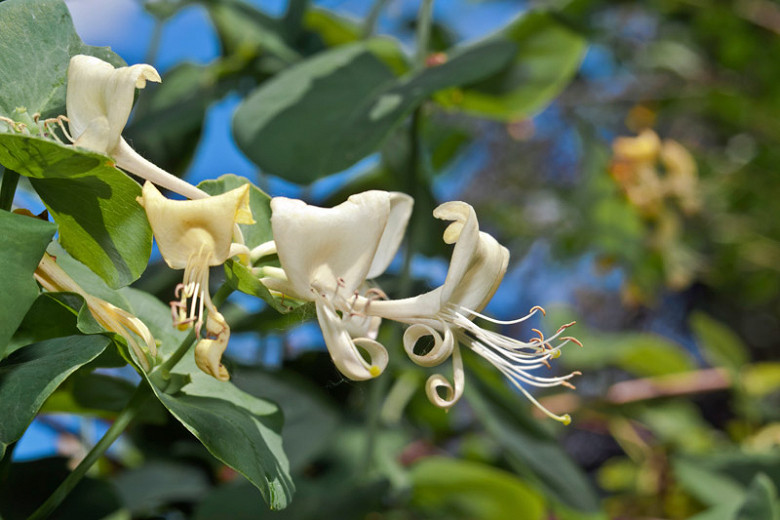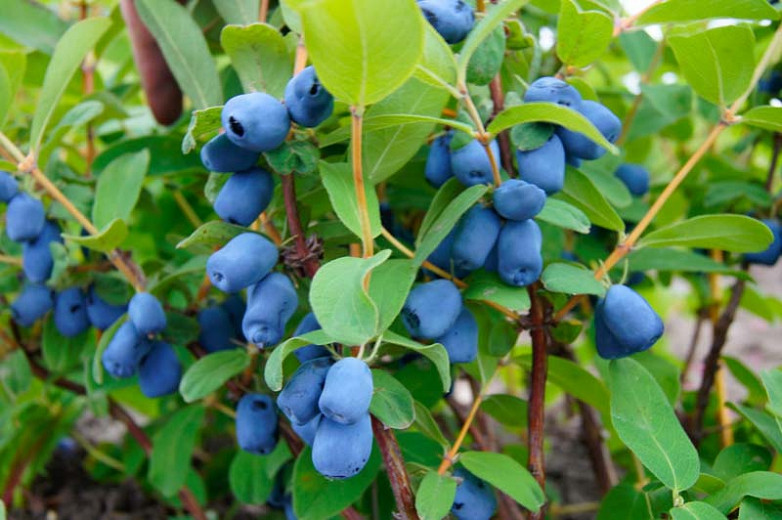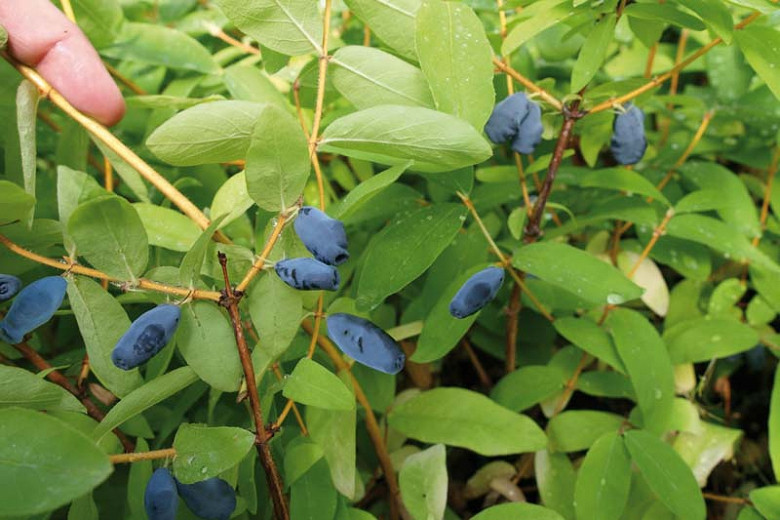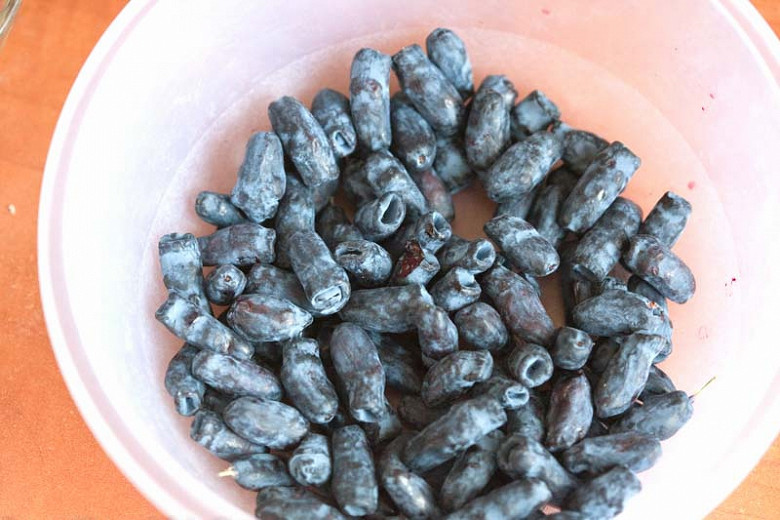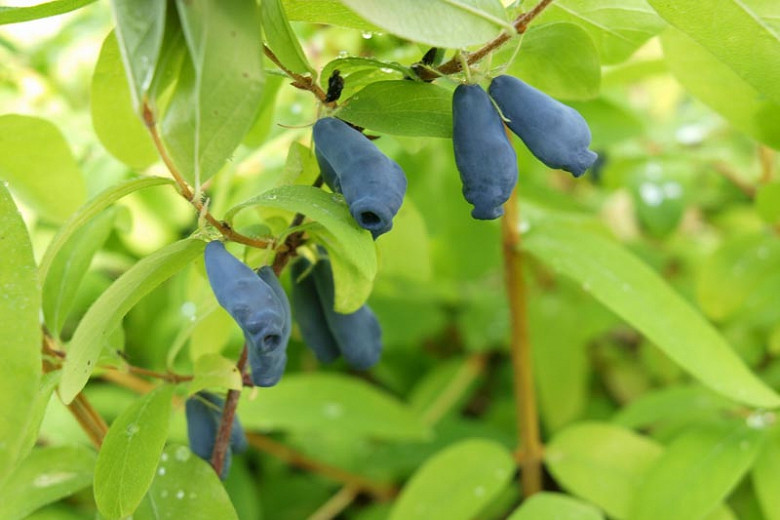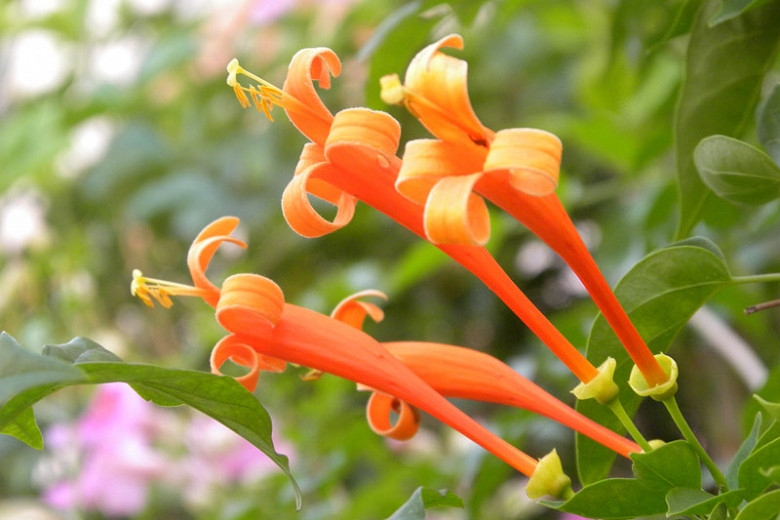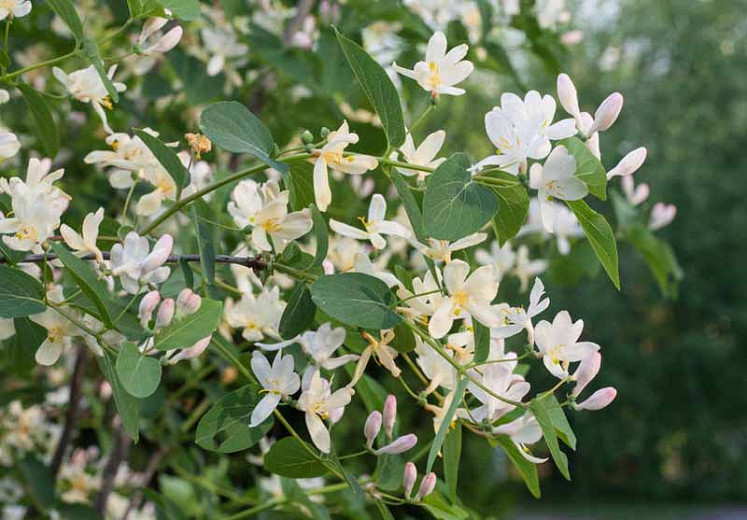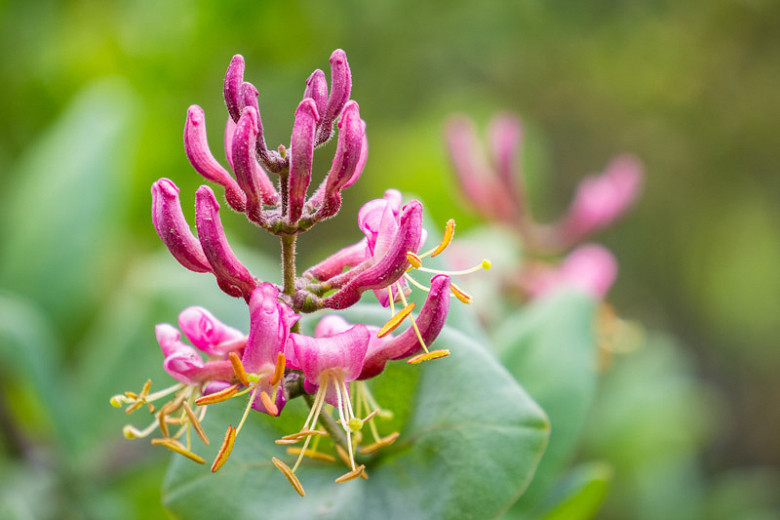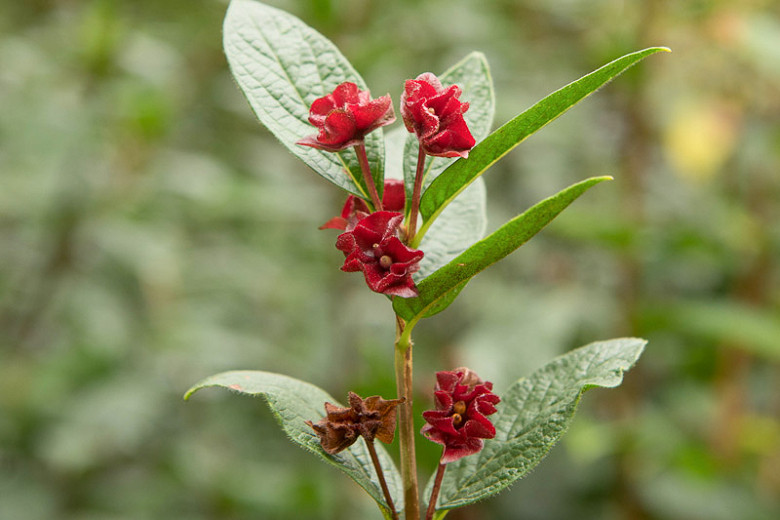Lonicera albiflora (White Honeysuckle)
Lonicera albiflora (White Honeysuckle) is a small, leafy vine or shrub with mostly woody, long and graceful stems clothed in broadly oval, lightly hairy, gray-green leaves, 2-3 in. long (5-7 cm). In early to late spring, attractive clusters of small, white, or pale yellow, two-lipped flowers appear at the tips of the branches. They are magnets for bees, butterflies, and other pollinators in search of nectar. They eventually give way to small, bright orange-red berries, which are ornamentally attractive but devoured by hungry birds. Although not fragrant, this honeysuckle is still a lovely garden plant, and it does not have the aggressive tendencies of Japanese honeysuckle (Lonicera japonica). It will happily cover walls, fences, or pergolas for a pretty floral display.
- Grows up to 3-10 ft. tall (90-300 cm) and 3-8 ft. wide (90-240 cm).
- A full sun to part shade lover, this plant is best grown in dry to moist, well-drained soils. Drought tolerant once established.
- Excellent choice for covering walls, fences, trellises, and pergolas.
- Low maintenance, this plant is generally pest and disease free. Keep an eye out for aphids.
- Propagate by layering, hardwood cuttings, or semi-hardwood cuttings.
- The berries are mildly toxic.
- Native to Arizona, New Mexico, Oklahoma, and Texas.
Requirements
| Hardiness | 7 – 10 |
|---|---|
| Plant Type | Climbers, Shrubs |
| Plant Family | Lonicera – Honeysuckles |
| Exposure | Full Sun, Partial Sun |
| Season of Interest | Spring (Early,Mid,Late)Fall |
| Height | 3' – 10' (90cm – 3m) |
| Spread | 3' – 8' (90cm – 240cm) |
| Water Needs | Low |
| Maintenance | Low |
| Soil Type | Clay, Loam, Sand |
| Soil pH | Acid, Alkaline, Neutral |
| Soil Drainage | Well-Drained |
| Characteristics | Showy, Fruit & Berries |
| Native Plants | United States, Southwest, Arizona, New Mexico, Oklahoma, Texas |
| Tolerance | Drought |
| Attracts | Bees, Birds, Butterflies |
| Garden Uses | Arbors, Pergolas, Trellises, Wall-Side Borders, Walls and Fences |
| Garden Styles | Informal and Cottage |
